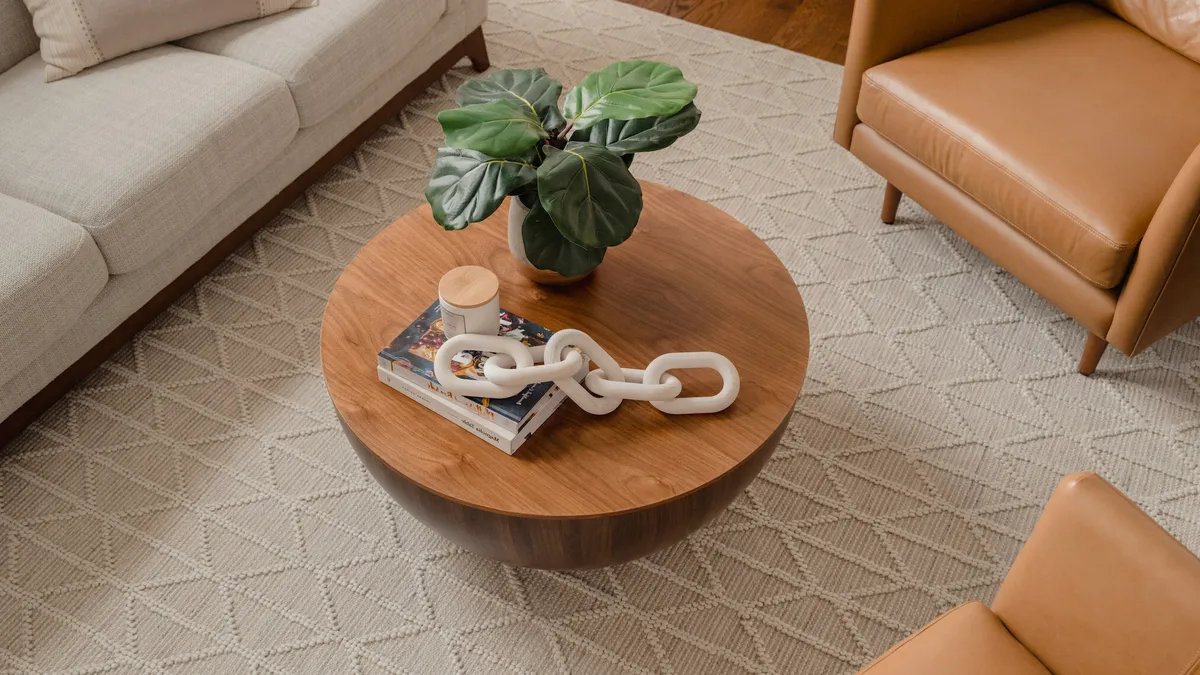Dive Brief:
- About six months after its Series A funding round, direct-to-consumer rug startup Ernesta has launched its beta e-commerce program, according to a Tuesday press release. The beta release follows Ernesta’s invitation-only alpha launch earlier this year.
- After being approved to purchase from a waitlist, customers can select and size rugs to custom measurements from the brand, which was founded by Peloton co-founders John Foley, Hisao Kushi and Yony Feng.
- The beta program also lets shoppers order up to five rug samples to see and feel for $50 and the cost is later applied toward a rug purchase. Ernesta has grown its geographic reach since its alpha launch, now delivering to 30,000 zip codes.
Dive Insight:
Ernesta hopes to provide customers with quality custom rugs with a hands-on approach.
"We are thrilled to launch our Beta program after the incredible response we received during our Alpha phase," John Foley, CEO of Ernesta, said in a statement. "The success of this program confirmed that consumers are eager for more elevated rug designs, and they truly value the impact of a custom-sized, well-tailored rug."
The custom rug startup debuted in November when it raised $25 million in a Series A funding round. The funding was led by Addition with participation from True Ventures and others. Kushi acts as Ernesta’s chief legal officer and Feng as chief technology officer, while five other former Peloton executives fill a variety of other positions.
Prior to starting Ernesta, Foley and Kushi in September announced they would exit fitness company Peloton, along with several other executives the same year as the company underwent a restructuring.
Ernesta has entered a category where some e-commerce home companies are struggling to grow. Overstock’s first-quarter earnings results in April showed its net revenue decreased 29% year over year to $381 million while its net loss was $10 million and active customers declined by 35%. Meanwhile, Wayfair earlier this month reported its first quarter saw a 7.3% revenue decline at $2.8 billion while net loss increased 11.3% and active customers dropped 14.6%.















